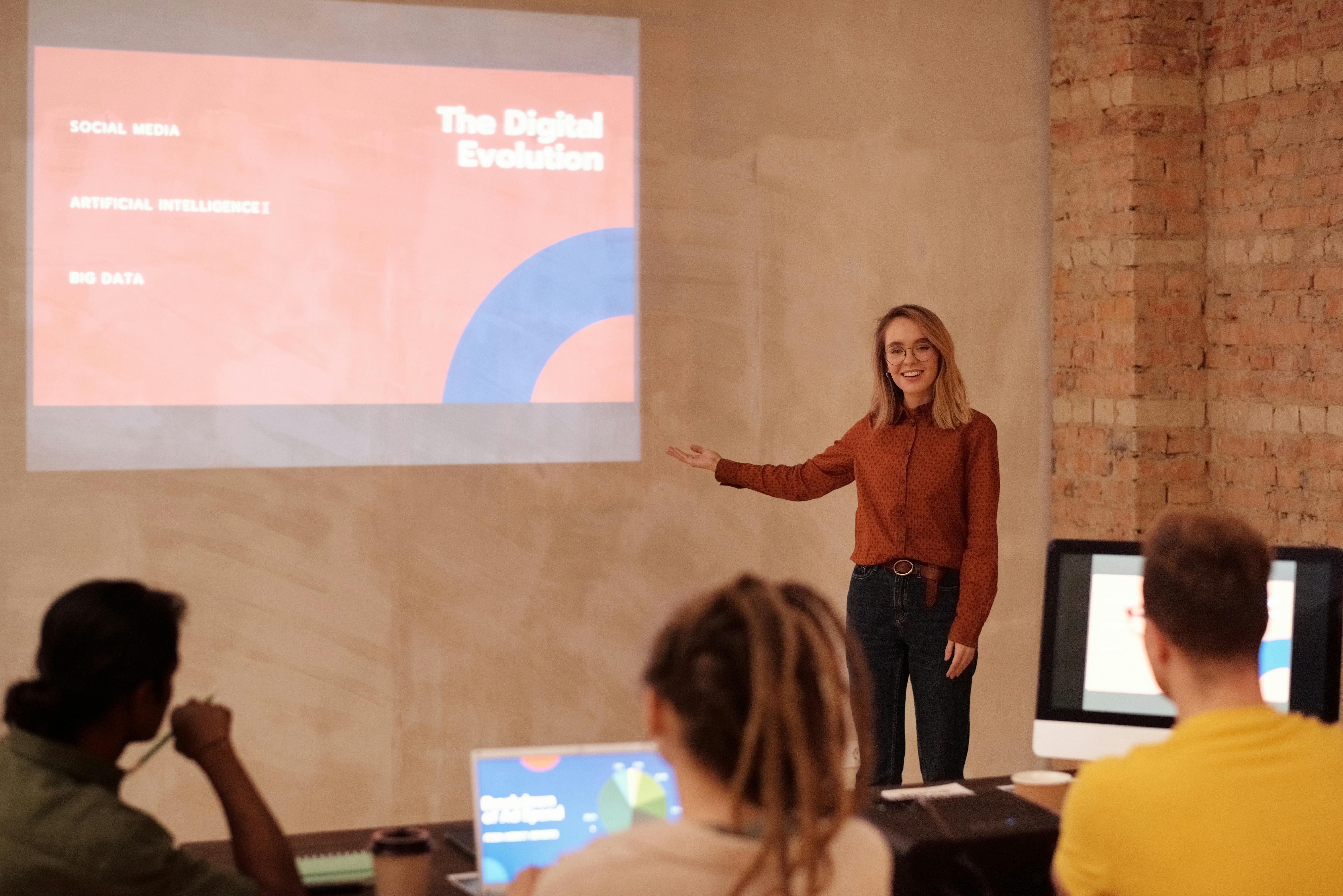Norway High-Income AI Careers: Step-by-Step Guide for 2025
“You’re moving to Norway? And you want a tech job—something in AI?” When I first heard that from a former colleague, I’ll admit, part of me bristled. Norway has always had a reputation for oil, nature, and healthy work-life balance—not exactly the place most people imagine when picturing advanced AI careers. But having lived it—and worked alongside both Norwegian and international tech professionals—I now know the reality couldn’t be more different. Not only does Norway’s booming digital economy reward advanced automation skills, but it’s hungry for real talent in AI, machine learning, and robotics. The catch? Getting there isn’t a matter of basic coding bootcamps or just “learning Python on the side.” It’s about integrating with a fiercely quality-driven, socially responsible tech culture—and finding your personal edge along the way. My aim is to give you the entire blueprint I wish I’d had back when I took the leap myself: practical, step-by-step, and (most importantly) honest about both obstacles and opportunities. This isn’t a generic blog—this is hard-won, truly actionable guidance.
Why Norway? The Rise of Advanced AI and Automation Careers
Let’s face it: Norway’s global tech persona is still overshadowed by oil and shipping. But look just below the surface, and you’ll see a national commitment to digital innovation that outpaces most of Europe. In fact, by 2024, the Norwegian government had already invested over €1.5 billion in AI and digital infrastructure projects1. According to McKinsey, more than 60% of large Norwegian companies are now prioritizing AI in their long-term strategies2. What really struck me my first winter in Oslo (other than the endless darkness) was just how much the tech community was buzzing with talk of responsible automation: not just efficiency for its own sake, but “How do we do this ethically? How does this benefit society?”
Norwegian Job Market Demands & Key Skills for 2025
So what are Norwegian employers actually looking for? I learned the hard way that they aren’t impressed by generic data science certificates or barebones automation projects. Employers want:
- Real-world experience automating workflows in Python, Rust, or Node.js
- Hands-on mastery of cloud platforms like Azure and AWS—especially for building/maintaining machine learning pipelines
- Domain knowledge: Finance, energy, shipping, or public services (huge local demand!)
- Ability to communicate complex AI systems to non-technical stakeholders
- Understanding of privacy law and EU/EEA digital compliance
Here’s the thing, though: Norway operates on trust and “flat hierarchies.” Titles mean less than action; your ability to learn, collaborate, and handle ambiguity is weighted heavily—often more than “years of experience.” (I’ve seen junior devs land six-figure salaries by showing initiative in small startups!)
This is where most newcomers stumble; they focus narrowly on coding or research, missing Norway’s holistic AI approach. On the other hand, those who embrace continuous learning—jumping into everything from hackathons to ethics workshops—tend to rise fast. So how do you actually position yourself for one of these coveted, high-paying AI jobs here? That’s up next—no fluff, just the practical, granular outline you need to get started.
Step-by-Step Roadmap: Building Your High-Income AI Career
Let me be totally honest: No “one-size-fits-all” hack will land you a high-paying AI job in Norway. Every story I’ve seen—from the Latvian robotics grad at a Bergen startup to the former barista now running a data ops team in Trondheim—follows its own unique arc. What unites the successful? Consistent, iterative action. Below, I’ll break down the actual steps I’ve seen work, along with the mistakes that nearly ruined promising careers (I’ll even share a few of my own embarrassing moments).
-
Research the Landscape—Deeply
Don’t trust generic “top job” lists. Instead, browse Finn.no, NAV job boards, and sector-specific sites (like Energy Valley or NORA.ai). Track the types of projects and tools they mention—you’ll find local preferences for, e.g., Azure ML over Google Cloud, or for domain skills in maritime AI you didn’t even realize existed. -
Choose 1-2 In-Demand Specializations
Norway loves cross-discipline skills. Are you a coding wizard with a background in healthcare? Focus on AI for MedTech. Finance background? Quant/automation roles in Oslo’s fintech scene are white-hot. -
Build a “Norwegian” Portfolio
I mean this literally—solve real-world challenges relevant to Norway’s top industries. Example projects: automating vessel routing for the shipping sector, or using reinforcement learning for smart energy grids. -
Level Up With Recognized Certifications
Sure, experience is king. But certifications like Microsoft Certified: Azure AI Engineer or the University of Oslo’s Data Science micro-credentials seriously open doors here5. -
Network—with Actual Norwegians (Not Just Expats!)
This was my own Achilles’ heel at first—I stuck with international circles, missing out on local insights, job leads, and that vital “cultural translation” you need for Norwegian workplace success. -
Speak Up—Share Your Work
Norwegians value humility, but you still need to make your skills visible. Publish a LinkedIn post about your latest automation project, or demo a Norwegian-language chatbot during a local meetup. Action trumps bravado here. -
Embrace Life-long Learning & Upskilling
The “set it and forget it” mentality does not fly here. You’re infinitely more employable if you enroll in local AI bootcamps, free MOOC courses, or advanced ML workshops—many subsidized by government initiatives6.
Common Pitfalls and How to Avoid Them
- Assuming English is enough—many roles require (or prefer) conversational Norwegian, especially in public sector projects.
- Neglecting cultural nuances—overconfidence or excessive self-promotion tends to backfire in interviews.
- Overloading your CV with theoretical projects—employers care more about what you shipped than what you studied.
- Underestimating compliance—data privacy law and GDPR enforcement are incredibly strict, especially for AI projects involving user data7.
| Step | Practical Action | Recommended Resource | Outcome/Metric |
|---|---|---|---|
| Specialize | Target niche AI skills relevant to Norwegian sectors | NORA.ai Sector Reports | # Industry interviews scheduled |
| Certify | Earn local-recognized certifications | University of Oslo MOOCs | # Certifications achieved # Applications submitted |
| Network | Join meetups, hackathons, open-source projects | Meetup.com/OsloAI | # Connections made # Collaboration invites |
| Apply | Optimize CV for Norwegian employers | NAV Career Consulting | # Interviews # Offers |
Let that sink in for a second—AI and automation in Norway aren’t just for coders or engineers. Success stories increasingly come from people who combine domain know-how with digital experimentation. Think: biologists using ML for climate research, public health analysts automating pandemic responses, or logistics experts building “smart ports” with IoT and AI. Where you start doesn’t matter as much as how you commit and adapt.

Cultural Fit & Language: Navigating Norwegian Tech Teams
Okay, let’s step back and talk workplace reality. Norwegians are famously pragmatic and egalitarian. Forget rigid C-level hierarchies—your direct manager might also host after-work quiz nights. What really surprises foreign hires, myself included? How much non-coding “fit” matters to career growth. I learned this the awkward way: misreading a manager’s silence as disapproval instead of the ultra-Norwegian “thoughtful agreement.”
- Feedback is subtle; don’t expect loud praise or harsh critique—it’s more about quiet trust earned over time.
- Collaboration wins; grandstanding solos lose. Teams decide everything, often by consensus.
- Work-life balance isn’t just a platitude—most AI teams log off exactly at 4pm unless there’s a real crisis.
- Diversity (especially in technical backgrounds and perspectives) is actively sought in top-tier teams9.
Should You Learn Norwegian?
In my experience, English will get you far in large tech firms and international startups. But if you aim for public sector roles, consulting, or leadership, conversational Norwegian shifts you from “expat” to “insider.” Nearly all companies cover language tuition. Even learning workplace basics breaks the ice and signals respect. For me, joining a “Norsk på jobben” (Norwegian at work) course was one of the best career choices I ever made.
Real Case Studies: Successes, Stumbles, Surprises
To make this real, let’s dig into some hard-won lessons from people who navigated Norway’s AI job path—warts and all. These are stories I’ve either lived or witnessed close-up. They prove you don’t need a “perfect” background, but you do need adaptive persistence.
- Marina, Energy AI Specialist
Background: Environmental engineering in Ukraine.
Pivot: Built an open-source ML model for wind energy forecasting using local Norwegian datasets.
Outcome: Hired by a major energy conglomerate—fluent in English but took intensive Norwegian classes for stakeholder meetings. - Aditya, Automation DevOps in Shipping
Background: CS master’s, India.
Mistake: Spammed generic CVs—rejected 30+ times.
Pivot: Attended shipping/AI meetups, contributed to marine logistics GitHub project.
Outcome: Hired at a Trondheim scale-up, got fast-tracked to technical lead in 18 months. - Lina, Public Health Data Scientist
Background: Degree in biostatistics, Sweden.
Struggle: Limited Norwegian, slow interviews.
Pivot: Applied for the NAV Digital Talent scheme, joined open data hackathon, and built a pandemic modeling tool that got press coverage.
Outcome: Landed public sector job and gained residency. Still learning Norwegian but now mentors others.
Red Flags and Green Lights (A Personal Checklist)
| Scenario | Red Flag | Green Light |
|---|---|---|
| AI Job Listing | Generic skills, no local context, no mention of ethics/compliance | Mentions Norwegian domain, GDPR, “responsible AI” |
| Interview Process | No live coding, solo decision-makers, vague on L&D | Paired tasks, consensus panel, discusses training/upskilling |
| Company Culture | No parental leave, top-down comms, no language support | Inclusive perks, flat structure, language tuition support |
What’s my biggest learning here? Don’t judge a Norwegian tech job offer by salary alone—the real value is in growth, trust, and visibility inside the ecosystem. The more you invest in local relationships and continuous learning, the more doors (and income levels) open up.
Practical Resources, Learning Paths, and Insider Links
Now for the resources I wish someone had handed me day one. Consider this your survival kit—modular, actionable, truly tailored to the Norwegian market and AI/automation focus.
- Job Boards: Finn.no, NAV job portal, Tenk Digital, EnergyValley (for energy/green tech jobs)
- Meetups & Networking: Oslo AI, Trondheim Developers, online hackathons via NORA.ai
- MOOCs & Courses (often free or subsidized): University of Oslo, NTNU, Universitetet i Bergen, Coursera/edX with Norway-specific tracks
- Domain-Specific Communities: Maritime Robotics, HealthTech Nordic, Arctic AI, Green Shipping Programme
- Compliance & Ethics: Datatilsynet (Norwegian Data Protection Authority), EU and EFTA digital law resources
- Open Data & AI Challenges: Norwegian Open Government Data (data.norge.no), local Kaggle competitions, NAV Digital Talent schemes
Final Thoughts: Summary, Pitfalls, and Next Steps
So, what really matters? In Norway, a high-income AI or automation career doesn’t come from “hacking” the system but from integrating—ethically, consistently, and visibly—into its collaborative, future-oriented ecosystem. Your pathway will include setbacks. My own nearly derailed thanks to isolation during my first Oslo winter and misjudging how much “hidden” networking matters here.
- Prioritize relationships over resumes.
- Double down on local relevance—projects, compliance, language basics.
- Embrace continuous upskilling as a non-negotiable, not just a nice-to-have.
- Ask questions openly—most local professionals go out of their way to help learners who show humility and commitment.
- Pick an industry niche with visible growth. Validate demand on local boards.
- Develop your portfolio with live, relevant Norwegian projects (open data, hackathons, meetups).
- Earn at least one Norway-recognized certification or micro-credential.
- Invest in Norwegian language and culture—even if you don’t plan to stay long-term.
- Share your journey, mistakes, and wins—help others as you help yourself.



